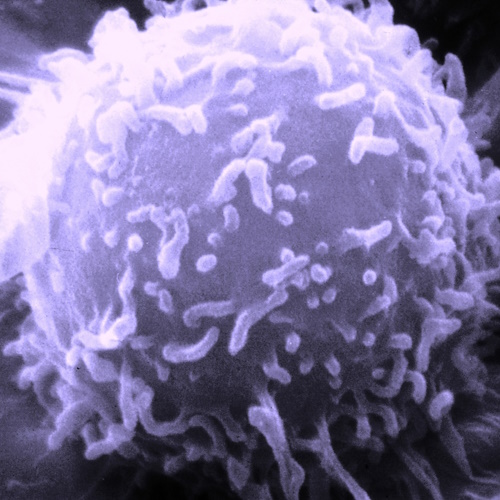As we get older, our immune system changes. These changes make us more likely to get sick. Our bodies don't fight infections as well as they used to. Also, our bodies might react too much to some things, causing chronic inflammation. This inflammation can lead to diseases that are common in older people. A key part of our immune system is toll-like receptors (TLRs). They help our body recognise and respond to threats. But, as we age, these TLRs work differently. Understanding these changes is important. It helps scientists think of new ways to keep us healthier as we get older.
Research details
A recent study embarked on a novel approach targeting TLR5, a component of the immune system found in mucosal areas such as the nose and digestive tract. As we age, our immune system weakens, but interestingly, TLR5 maintains its effectiveness even in older individuals. This quality of TLR5 sparked the researchers' interest.
To activate TLR5, scientists used a fusion protein named FP, combining elements of flagellin and a pneumococcal protein. The choice of these components was strategic, as flagellin is known to activate TLR5 effectively. The protein was administered to elderly mice through nasal instillation, a method chosen for its direct delivery to mucosal surfaces.
The primary objective was to investigate whether stimulating TLR5 in this manner could enhance the health and lifespan of aged mice. By focusing on mucosal activation, the researchers aimed to leverage the body's first line of defense against pathogens. This approach was innovative, as it targeted a specific part of the immune system that remains relatively robust in older individuals.
The choice of the nasal route was also significant. It allowed for direct stimulation of TLR5 in the respiratory tract, a common site for infections in the elderly. Additionally, the nasal administration meant that the effects could potentially spread to other mucosal areas in the body.
Health and lifespan improvement
The findings from the study on mucosal activation of TLR5 in elderly mice, led by Joon Haeng Rhee at Chonnam National University, are both significant and multifaceted, encompassing various aspects of health and longevity.
Lifespan Extension:
One of the most striking outcomes was the extension of lifespan in the treated mice. Both the mean and median lifespan increased, indicating a general trend rather than just a few outliers living longer. Notably, female mice exhibited a more pronounced response to the treatment. This suggests a potential gender-specific aspect of the treatment's efficacy, a point that could have broader implications for human applications.
Physical Health Improvements:
The physical condition of the mice improved markedly. Researchers observed enhanced hair quality, indicating better overall health and perhaps better nutritional status or less systemic stress. The reduced incidence of cataracts, a common age-related condition, suggests a protective effect against degenerative eye diseases. Furthermore, the increase in bone mineral density is particularly important in the context of ageing, as it implies resistance to osteoporosis and related complications.
Cognitive Function Enhancements:
The treated mice demonstrated significant cognitive improvements. Enhanced glucose absorption in the brain is critical because glucose is the primary energy source for the brain, and its efficient use is essential for cognitive functions. Improved performance in memory and behavior tests further substantiates this, suggesting that the treatment has a positive effect on the brain's health and functioning, potentially combating age-related cognitive decline.
Increased Disease Resistance:
A vital finding was the increased resistance to pulmonary fibrosis. This disease, characterised by the thickening and scarring of lung tissue, is a serious age-related condition. The fact that the treated mice showed significant protection against this disease underscores the potential of TLR5 activation in preventing or mitigating severe respiratory diseases in the elderly.
These findings collectively paint a picture of a treatment that not only extends lifespan but also enhances the quality of life in advanced age.
A New Horizon in Age-Related Interventions
The implications of the study on mucosal activation of TLR5 in ageing, as published in Nature Communications, are far-reaching and transformative for the field of geriatric medicine and ageing research. The study's findings suggest a new horizon in age-related interventions, offering a novel approach to enhance health and longevity.
Targeted Immune System Activation: This research highlights the potential of selectively activating parts of the immune system that remain robust in older age. It proposes a shift from broad-spectrum interventions to more focused strategies that target specific immune pathways.
Preventive and Therapeutic Potential: The effectiveness of TLR5 activation in preventing age-related diseases, such as pulmonary fibrosis, and improving cognitive functions, opens the door to both preventive and therapeutic applications in geriatric healthcare.
Personalised Medicine Approach: The gender-specific response observed in the study underscores the importance of personalised medicine. Treatments in the future might be tailored based on individual characteristics like sex, age, and genetic predispositions.
Broader Applications in Ageing Research: The findings could influence a wide range of ageing-related research areas, leading to new insights into the mechanisms of ageing and the development of interventions targeting other age-associated diseases.
Implications for Public Health: Given the global trend of an ageing population, these discoveries could have significant public health implications. Effective age-related interventions can improve the quality of life for the elderly and reduce the burden on healthcare systems.
Credits
This transformative research was conducted at Chonnam National University, in collaboration with various esteemed colleagues. For a detailed understanding of these findings, you can read the full study published in Nature Communications.





